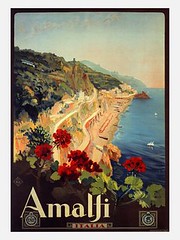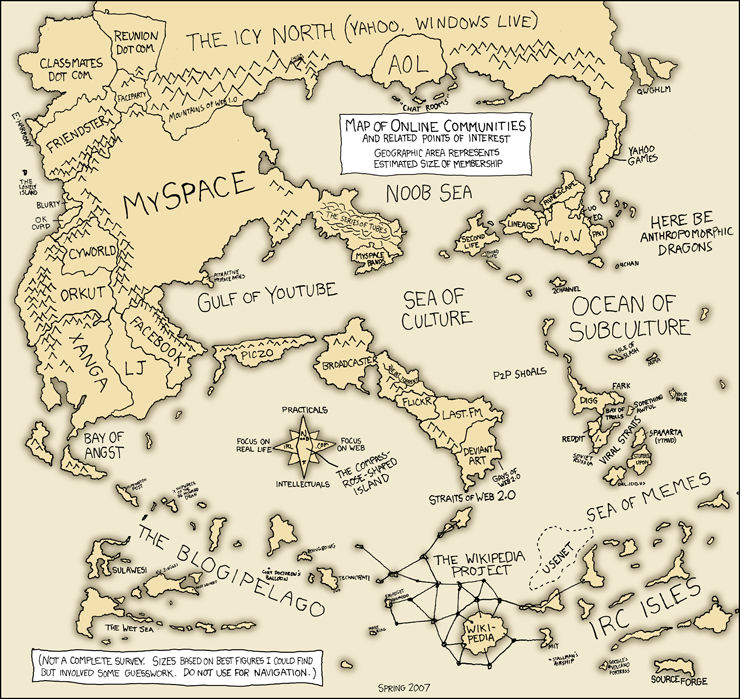 Image via Wikipedia
Image via Wikipedia
And if I feel this way, how much more so the average patron?
Online, you pose a question and if someone wants to, and has an expertise, they answer! Marvelous! Because the answer is volunteered, there is a relief that you really aren't bothering someone. It's important, then, to be able to assess the quality of the source for your information. Are they an expert?
I looked at sites for questions that interested me - a home repair question and recommendaions about a good, inexpensive digital camera. I looked at several sites for the home repair question, and found good consistency. I need to repair ceiling cracks in a "popcorn" ceiling, and first remove the popcorn texture. It was enough of a "niche" question that my home-repair books didn't cover it. I was happy to find the info and felt it was reliable and consistent between sites.
The digital camera reviews didn't seem as reliable. Sometimes there was a lone voice advocating for a camera, with few corroborating reviews, "stars," or ratings.
The camera question would have been effectively answered at a library by reviewing Consumer Reports. I think the "popcorn ceiling" question was answered well online, and I don't know of any databases that would have provided a better answer. This kind of low-tech, low-risk repair DIY question needs hands-on expertise, not necessarily an academic answer.
People use these sites because we like to go online. IM reference has the same immediacy. I want a quick and dirty answer. In the case of the camera, I suspect there are only subtle differences in inexp4nsive cameras stocked by familiar stores like K-Mart, Wal-Mart, or Best Buy. You choose the features you want. If you aren't looking for high-end merchandise, you may choose not to research this question at all.
In the case of the ceiling repair, I was looking for a general idea, to know how complicated the task would be and get some idea of the time required. I won't be doing this until summer, and I can look ino it more as the project comes closer.
It's this kind of casual, low-stakes inquiry that you hate to ask a librarian about. You don't necessarily want to unleash that awesome dogged searching power. You don't want to wait your turn at the ref desk. You don't want to sit through a lengthy phone menu and then wait on hold for a librarian, specially if you suspect they will just look up your question on Google.
You just want a direction, a hint, a first cut. I wonder if this sort of casual, low-risk inquiry, which answer boards handle well, would have made it into the library even if the answer boards didn't exist. These are classic "ask around" questions, for friends and brothers-in-law. The web community, or web 2.0, is great for informal inquiry.
Questions for which a higher level of answer specifity is required, more high-stakes questions, demand experts. Then it goes back to information literacy, people's ability to discern the quality of the information they are getting.
Notes to self, from readings for Thing 34:
Link to Jessamyn West, and a somewhat contrarian (or more realistic) view of technology in rural libraries.
Ecerpt from Jenny Levine--Future of Librarians Interviews, on 2.0 aps in libraries
Obviously we're no longer gatekeepers of information, but our role is shifting to that of the guide, the trusted expert. Which we've always been, but you had to come to us to physically get the information, which is what has changed most dramatically. Expertise is another issue, as we move into an era of networked collective intelligence, but there is simply no substitute for the knowledge and guidance a librarian can provide. Those services will become ever more important as information overload grows and hits even more of our population.
In addition, there are numerous other options available to us if we want to take them, most of which revolve around training. For example, to help folks deal with information overload, we could teach them to use RSS aggregators and even help start them off with localized or customized OPML files of feeds. Some libraries have already begun offering a next generation of computer classes that help explain and navigate the new tools and information landscape. The Princeton Public Library has a "tech garage" where class participants can play with new devices in a hands-on way with guidance from expert librarians.
We can be a lot more proactive about information literacy, as well, elevating our efforts to fill the gap that is widening in regards to media literacies. We can help parents better understand things like gaming, help teach our youth how to be safe online, teach everyone how to manage their online identities, and in general help elevate the level of political discourse and democracy in our country. Pretty noble and lofty goals, but we could do it, and I actually believe libraries are the only institutions that can do this.
Artwork: Giuseppe Arcimboldo, The Librarian
![Reblog this post [with Zemanta]](http://img.zemanta.com/reblog_e.png?x-id=1f506f04-0bcf-49c0-95f8-077f16f118ee)

![Reblog this post [with Zemanta]](http://img.zemanta.com/reblog_e.png?x-id=4da8cdb9-c702-40dd-9620-93fbb67b455b)
![Reblog this post [with Zemanta]](http://img.zemanta.com/reblog_e.png?x-id=2a92b39c-88ac-4433-8bf9-5e7b5e8d366f)

![Reblog this post [with Zemanta]](http://img.zemanta.com/reblog_e.png?x-id=110d0420-0629-441c-9313-63c62d8ff15b)

![Reblog this post [with Zemanta]](http://img.zemanta.com/reblog_e.png?x-id=3ca81417-8de1-4d46-bbfa-048811c6de0c)

